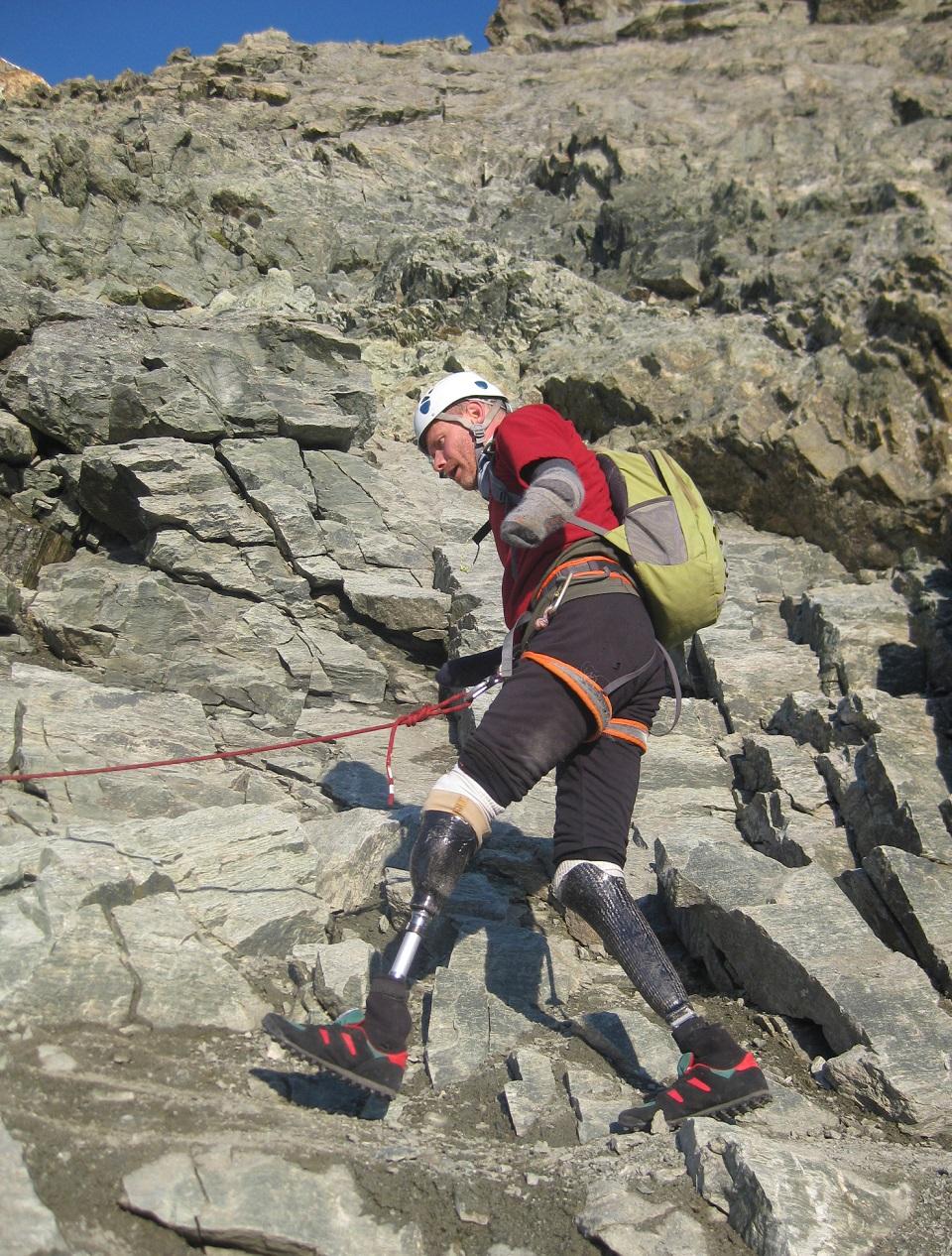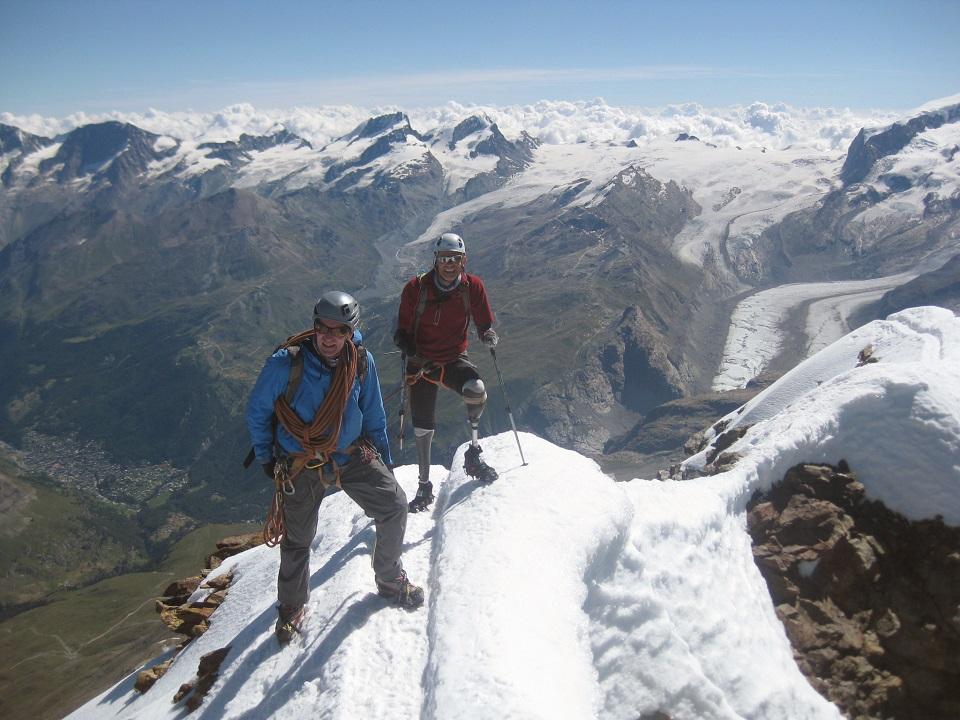British quadruple amputee climbs Matterhorn

GENEVA - A disabled British mountaineer was celebrating Tuesday after climbing the mighty Matterhorn peak in the Swiss Alps, telling AFP: "You really can achieve anything."
Scotsman Jamie Andrew said he could not prove he was the first person missing both hands and feet to scale the 4,478-meter (14,700-foot) mountain, but insisted: "I definitely am."
The distinctive pyramidal Matterhorn, which lies on the border with Italy, is considered a national symbol in Switzerland.
Accompanied by two mountain guides, Andrew climbed to the top in about six hours on Thursday, and then took another six and a half hours to descend—reportedly five hours more than the average climbing time.
"It's fantastic," he said, insisting "it's not about breaking records. It is just about proving that you can achieve great things, by making the most of what you have and by believing in yourself and taking it one step at a time."
Andrew, who made the climb a day after his 47th birthday, was forced to amputate both his legs below the knees and his arms below the elbows after a climbing accident on the North Face of Les Droites in the French Alps 17 years ago.
His climbing partner Jamie Fisher died in the accident.
Even shortly after the accident, Andrew says he dreamed he would climb again.
"But I never dreamt I could climb Matterhorn. My first goal was to go hiking in my local hills in Scotland," he said.

The married father of three climbed the 5,895-meter Kilimanjaro in Tanzania in 2004, and since then quite a few mountains in the Alps.
For the past five years, he has been training for the Matterhorn, and almost made it to the top in 2014 before having to abandon his attempt just 250 metres from the summit.
"It's a relief that this has finally come to fruition," he said, acknowledging that the "Matterhorn is definitely the hardest thing I did."
Andrew said he hoped his feat could serve as an inspiration to others, but rejected suggestions it could prompt some to put themselves at risk.
"Mountaineering is a dangerous activity and everyone who goes into the mountains should know what they're doing," he said, insisting "that applies to everybody, whether they are an able-bodied mountaineer or disabled."
"I hope this shows you can achieve far more than you dreamt, but that does not necessarily mean pushing yourself into the face of danger, just pushing yourself mentally, physically and emotionally," he said.
Asked what his next adventure would be, he said "I want to take a break before thinking about it, but there will definitely be further challenges." — Agence France-Presse




